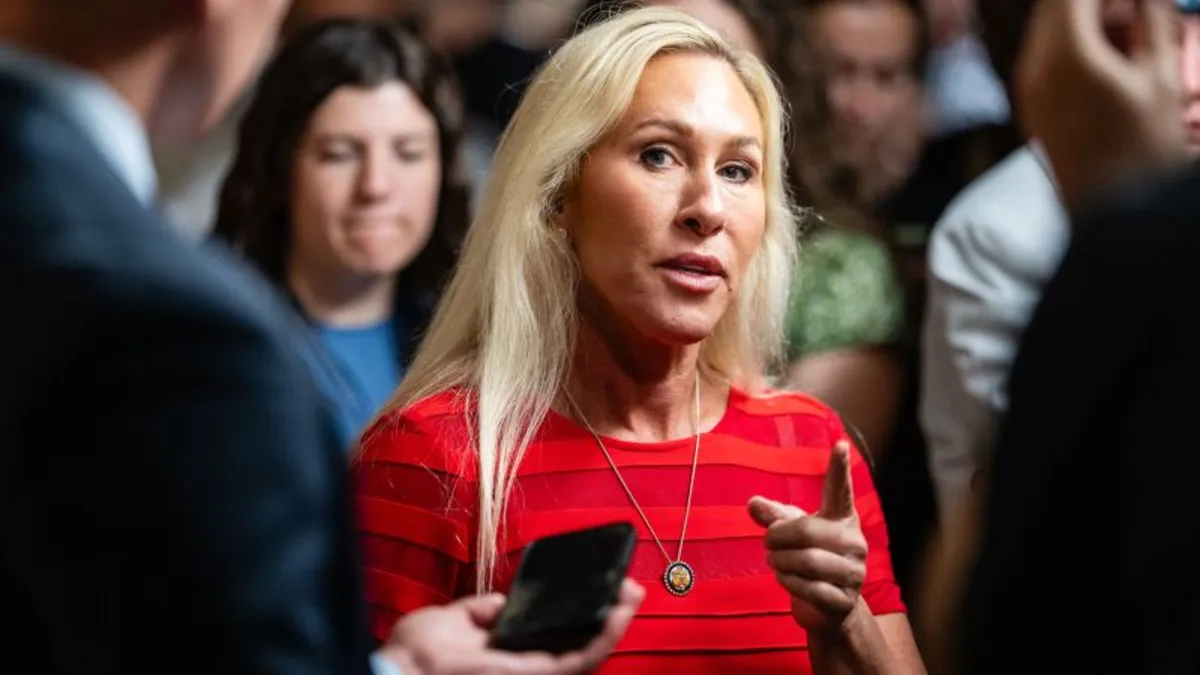
On Tuesday, tensions escalated within the Republican Party as House Speaker Mike Johnson and GOP Rep. Marjorie Taylor Greene of Georgia engaged in a heated exchange during a private call with House Republicans. This confrontation highlights the growing unrest among House GOP members as the government shutdown continues to impact millions of Americans.
During the call, Greene openly criticized Johnson’s decision to keep the House out of session, asserting that he is disconnected from the needs and concerns of the American public. According to sources on the call, Greene's frustrations were directed at GOP leadership for their lack of action during the ongoing shutdown. Her remarks underscored a sentiment shared by many within the party who are frustrated with the current inaction.
In response to Greene’s forceful criticisms, Johnson maintained a calm demeanor, arguing that infighting within the Republican Party was unproductive. He attributed the government shutdown to the Democrats, stating that the party should remain united in their stance. Johnson also noted that former President Donald Trump’s poll numbers are on the rise, suggesting that the GOP should focus on maintaining solidarity rather than engaging in internal disputes.
As the government shutdown drags on, Johnson warned House Republicans that the impact on everyday Americans is about to escalate significantly. He referred to the impending consequences as reaching a level “10,” highlighting concerns such as loss of food assistance for millions, disrupted air travel, and missed paychecks for federal workers. This dire situation has intensified the urgency for a clear GOP strategy moving forward.
Other Republican representatives, including Kevin Kiley of California and Dan Crenshaw of Texas, expressed similar frustrations regarding the decision to keep the House out of session during the shutdown. The prolonged inaction has left many lawmakers feeling uneasy, as constituents continue to suffer from the effects of the shutdown.
As frustrations mount, Greene and Kiley have called for a more transparent plan from GOP leadership. Despite the dissatisfaction, many in the conference continue to support Johnson, arguing that the House cannot reconvene until Democrats agree to reopen the government. However, the pressure is building within the party, as leadership loyalists exhibit signs of stress under the weight of ongoing criticisms.
Following the private call, Greene took to social media platform X to express her discontent. She stated, “You left out that I said I have no respect for the House not being in session passing our bills and the President’s executive orders.” Greene further pressed Johnson for a definitive Republican plan for healthcare, criticizing the lack of policy proposals presented during the conference call.
As the GOP grapples with internal conflicts, Democrats have urged Republicans to engage in negotiations regarding the extension of expiring enhanced Affordable Care Act subsidies. However, Republican leadership has maintained that any discussions must wait until the government is reopened, placing further strain on bipartisan relations.
In conclusion, the ongoing struggle within the Republican Party during this government shutdown reflects a deeper division regarding leadership, strategy, and the ability to respond effectively to the needs of the American people. As tensions rise, it remains to be seen how the party will navigate these challenges in the days ahead.